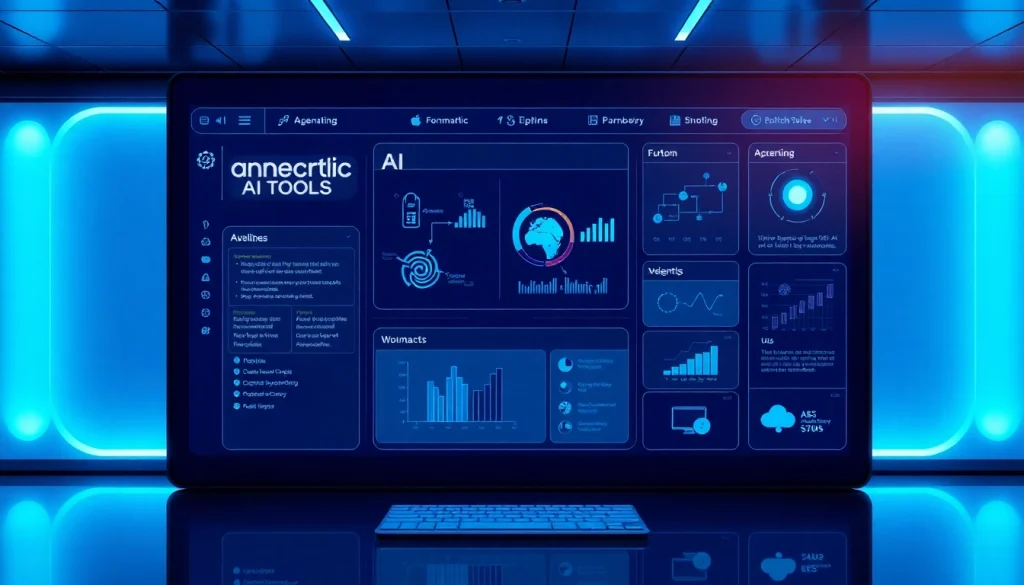
What is Agentic AI?
Definition and Core Concepts
Agentic AI refers to a distinct class of artificial intelligence systems designed to operate autonomously, making strategic decisions and performing tasks without the need for continuous human oversight. Unlike traditional AI, which often serves as an assistant or tool requiring user input at every step, Agentic AI can learn, adapt, and take initiative in dynamic environments. This autonomous capacity positions Agentic AI as a significant evolution in the AI landscape, enabling it to tackle intricate multi-step problems with more nuance and efficacy.
How Agentic AI Differs from Traditional AI
To fully comprehend Agentic AI, it’s crucial to understand how it contrasts with traditional AI systems. Typically, traditional AI relies on predefined rules and patterns to respond to input data. It is reactive, essentially responding to commands issued by human users. In contrast, Agentic AI is proactive; it can evaluate varying scenarios, foresee potential outcomes, and make decisions that align with long-term goals. This self-governing capability involves several advanced algorithms, including reinforcement learning and deep learning, which allow Agentic AI to refine its decision-making processes over time.
Key Characteristics of Agentic AI Systems
- Autonomy: Capable of making decisions independently.
- Adaptability: Learns and adjusts strategies based on environmental feedback.
- Goal Orientation: Focused on achieving specific objectives without external direction.
- Complex Problem Solving: Able to address intricate multi-step challenges that may require creative solutions.
- Iterative Planning: Continuously refines its approach based on past outcomes and current context.
Applications of Agentic AI
Industries Transforming with Agentic AI
Agentic AI is poised to revolutionize several industries, bringing profound changes to how operations are conducted. In sectors such as healthcare, finance, logistics, and customer service, Agentic AI’s capability to analyze vast datasets, predict trends, and make decisions enhances efficiency and effectiveness.
Real-World Use Cases
Numerous organizations have begun implementing Agentic AI to address specific challenges:
- Healthcare: Agentic AI helps in diagnosing diseases by analyzing medical images and patient data, leading to more accurate treatments.
- Finance: In financial markets, it automates trading decisions based on market data, optimizing investment strategies in real-time.
- Logistics: It orchestrates supply chain processes, optimizing routes and inventory management without human intervention.
- Customer Service: AI chatbots powered by Agentic AI resolve queries and problems autonomously, learning from interactions to improve service quality.
Benefits and Potential Pitfalls
The implementation of Agentic AI offers several benefits, such as:
- Increased Efficiency: Automates routine tasks, freeing human employees for higher-level strategic planning.
- Improved Accuracy: Reduces the potential for human error in decision-making processes.
- Cost Reduction: Lowers operational costs by decreasing the need for human oversight in certain functions.
However, alongside these advantages are potential pitfalls:
- Ethical Concerns: The autonomy of these systems raises ethical implications about accountability and transparency in decision-making.
- Dependence on Technology: Over-reliance might lead to skills atrophy within human teams.
- Data Privacy Issues: The need for vast amounts of data poses challenges in protecting user privacy and complying with regulations.
Comparing Agentic AI and Generative AI
Understanding the Key Differences
While both Agentic AI and Generative AI harness advanced technologies, they serve fundamentally different purposes. Generative AI focuses primarily on creating new content based on input data, such as writing articles or composing music. In contrast, Agentic AI emphasizes decision-making and action, enabling systems to achieve specific goals autonomously.
Specific Use Cases for Each Type
Each type of AI excels in different areas due to its design. For instance:
- Generative AI: Useful in creative fields like content generation, design, or artistic creation.
- Agentic AI: Effective in sectors that require complex decision-making, such as finance, healthcare, and robotics.
Choosing the Right AI for Your Needs
When deciding between Agentic and Generative AI, businesses should consider their primary objectives. If the goal involves generating creative content, Generative AI is a suitable choice. Conversely, for businesses seeking to enhance decision-making processes and operational efficiency through automation, Agentic AI provides the requisite capabilities.
Future Trends in Agentic AI
Emerging Technologies and Innovations
The landscape of Agentic AI is rapidly evolving, with several emerging technologies poised to drive its advancement. Innovations in quantum computing, for instance, may enable Agentic AI systems to process information at unprecedented speeds, enhancing their decision-making capabilities. Additionally, the integration of blockchain technology could bolster trust and transparency in AI decision-making processes, addressing some of the ethical concerns associated with autonomy.
The Role of Machine Learning in Advancing Agentic AI
Machine learning (ML) is a vital component of Agentic AI, as it allows systems to improve their performance based on past experiences. By harnessing vast datasets, ML algorithms enable Agentic AI to recognize patterns, adapt to new scenarios, and refine its decision-making logic. The proliferation of data generated by IoT devices enhances this process, providing Agentic AI with the necessary information to operate effectively in real-time.
Predictions for AI in Business Workflows
As businesses increasingly integrate Agentic AI into their workflows, we can expect several trends to emerge:
- Greater Empowerment of Workforces: Employees will collaborate more effectively with AI, focusing on strategic initiatives rather than mundane tasks.
- Increased Personalization: Autonomous decision-making will enable highly personalized customer experiences across various sectors, from retail to healthcare.
- AI-Driven Decision Support: Management teams will deploy Agentic AI to facilitate data-driven decisions, enhancing organizational agility and responsiveness.
Getting Started with Agentic AI
Implementation Strategies for Businesses
For businesses seeking to implement Agentic AI, a thoughtful strategy is paramount. Companies should start with pilot projects that focus on specific tasks or processes, allowing for gradual integration and assessment of effectiveness. Collaborating with AI specialists to develop tailored solutions can also provide a significant advantage in this initial phase.
Measuring Success with Agentic AI Tools
To gauge the effectiveness of Agentic AI implementations, businesses should establish clear metrics for success. Key performance indicators (KPIs) may include:
- Reduction in operational costs
- Improvement in decision-making speed
- Increased customer satisfaction ratings
- Enhancements in task completion rates
Regularly reviewing these metrics will help organizations adapt their strategies and maximize the benefits of Agentic AI.
Resources and Further Reading
For those looking to deepen their understanding of Agentic AI, numerous resources are available, including scholarly articles, industry reports, and case studies. Engaging with online platforms, webinars, and conferences focused on AI innovations can also provide valuable insights into best practices and future trends in the field.






